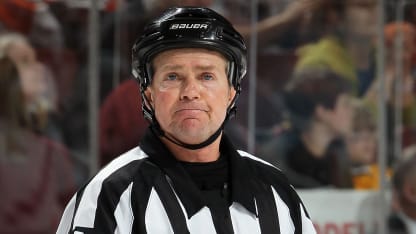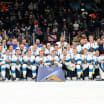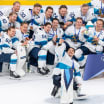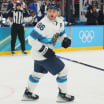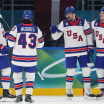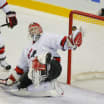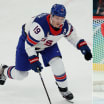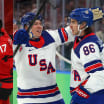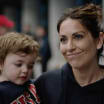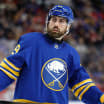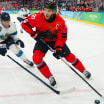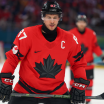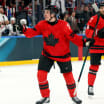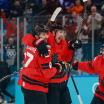After another hectic drive through rush-hour traffic from our home in southern New Jersey, I was lamenting to Kathy -- actually complaining in vociferous terms that warranted a misconduct penalty -- why she had booked me into this facility in the first place! After all, this is where former NHL coach Roger Neilson and other really sick people come to be treated.
RELATED: [Join the Fight!| Nicholle Anderson blog]
All I had was an abnormally high platelet count that was detected in a routine pre-op blood test to remove a fatty cell (lipoma) from my right bicep. That surgery was slick and the biopsy of the rather large mass was benign. This is overkill I said... blah... blah... blah. I fully expected Kathy to say, "C'mon ref, would you be quiet!"
But with the patience of a saint, my dear wife has a knack for knowing what is best. Kathy is the caretaker of our large family; all seven of our children, 10 grandchildren and most often her biggest challenge of all -- me! Neither one of us was prepared for the news that followed.
Dr. Barta informed us that, following genetic blood testing, they could make a diagnosis. I have a rare chronic blood disorder called essential thrombocythemia or ET for short. It is an incurable cancer in the leukemia family, although in rare instances it can evolve into a related disease called myelofibrosis, or into acute leukemia.
That was a sucker punch in the gut that neither Kathy nor I anticipated.
The doctor went on to explain that patients with ET have an increased number of platelets. Platelets are the smallest of the three types of blood cells and are needed for successful blood clotting after an injury. The greatest health risk in patients with ET is an increased risk of developing blood clots. ET patients are more likely to experience strokes and heart attacks as a result. It is important to note, however, that most people with an elevated platelet count do not have ET.
Dr. Barta was also quick to point out that while it is an incurable cancer, those afflicted can live a normal life for many years. I will be having a bone marrow biopsy to be certain that the disease has not progressed.
Fewer than one in 100,000 people in any year are diagnosed with ET. Women are more likely to be diagnosed with ET than men, although the reason for this is unknown.
I consider myself blessed that this rare disease was diagnosed before I had a stroke or heart attack. At 65, I was planning on living a healthy, full life for many more years. Now that I know I have this disease I can take extra precautions to keep my blood thinner and hopefully prevent a blood clot from hitting my heart or brain.
My family gives me strength and a good reason to prioritize my goals in life. My faith gives me the peace to know that all is in God's hands. Kathy gave me a reading that I used at the funeral of my dad, Hilt, 16 years ago ... "We pass through this life but once. Therefore any good that I may do, or any kindness that I may show, let me do it now, for I shall not pass this way again!"
The NHL has given me a vehicle to help others with its Hockey Fights Cancer initiative. After 30 years as an NHL referee and seven years since my retirement, I still live and breathe hockey, but I've come to realize that people are more important than the game I love. The players, the coaches, the general managers, the officials, the security representatives, the off-ice crews, hockey operations, the vice presidents, the Deputy Commissioner, the Commissioner and the owners ... all one big family with wives, children and grandchildren of their own. As in all families, we have been known to battle ... the NHL and I, but I am proud to say I am part of that hockey community, that brotherhood, that family. We now stand together and fight for a common cause.
